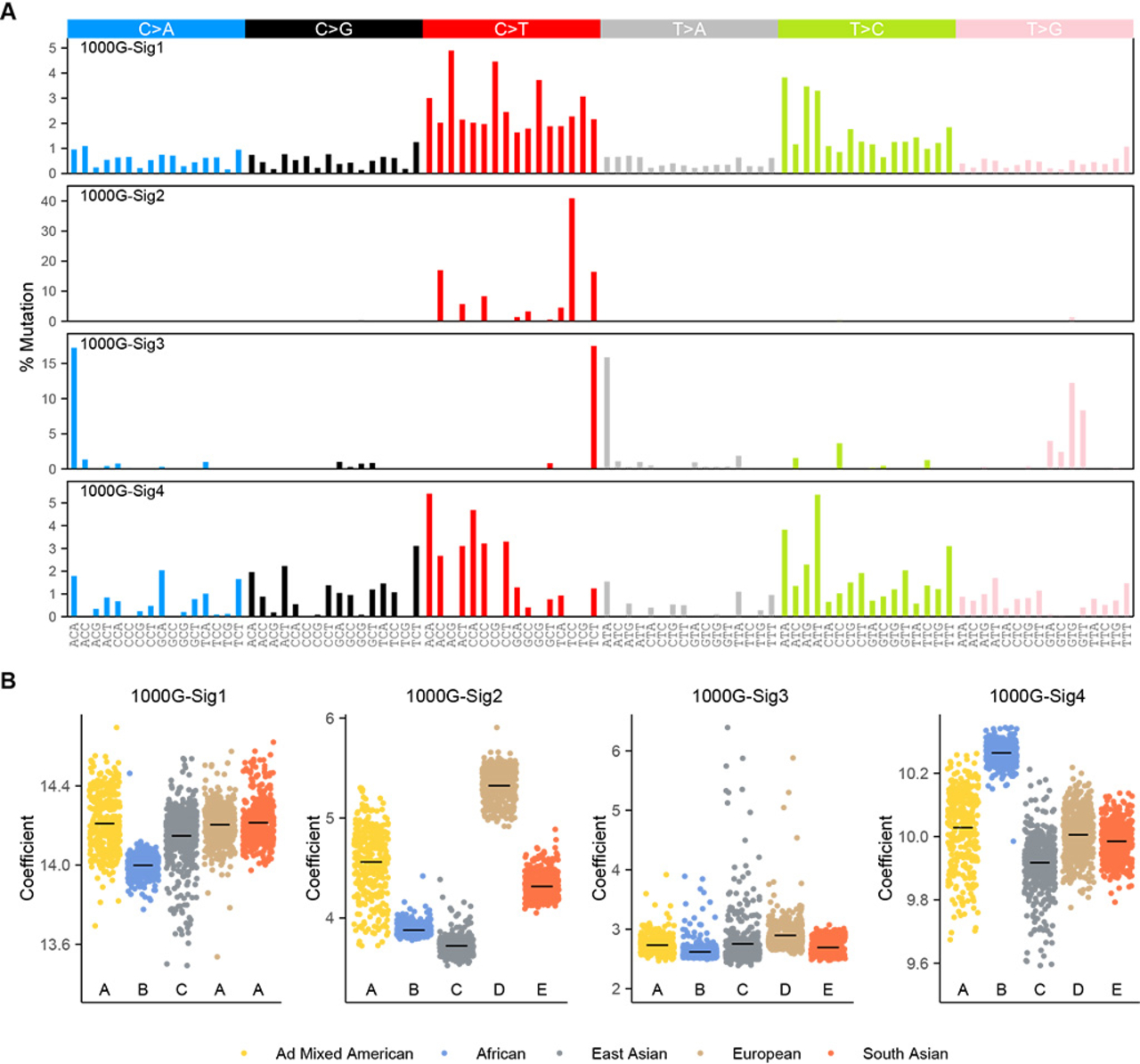Mutational processes in host evolution. All heritable variation begins with damage to an organism genetic material and is acted upon by selection. Biochemical mechanisms govern these mutational processes which can leave characteristic mutational signature described by the type of mutation they cause (i.e. A>T) and the preferred context (TAC TTC >> TAG TTG). Deciphering the mutational signatures is a crucial step to discovering the molecular processes responsible for DNA variations across human populations, and potentially for causing genetic diseases. For example, the human genome contains over 100 million SNPs, most of which are C/T (G/A) variations. The type and sequence context of these SNPs are not random, suggesting that they are caused by distinct mutational processes. Using multiple quantitative biology approaches to deconvolute germline mutational signatures, we found at least four mutational processes are responsible for human genetic variations. One process is was population specific though now dormant. The remaining three processes are currently active in all human populations; two nuclear and one specific to mitochondrial DNA.

